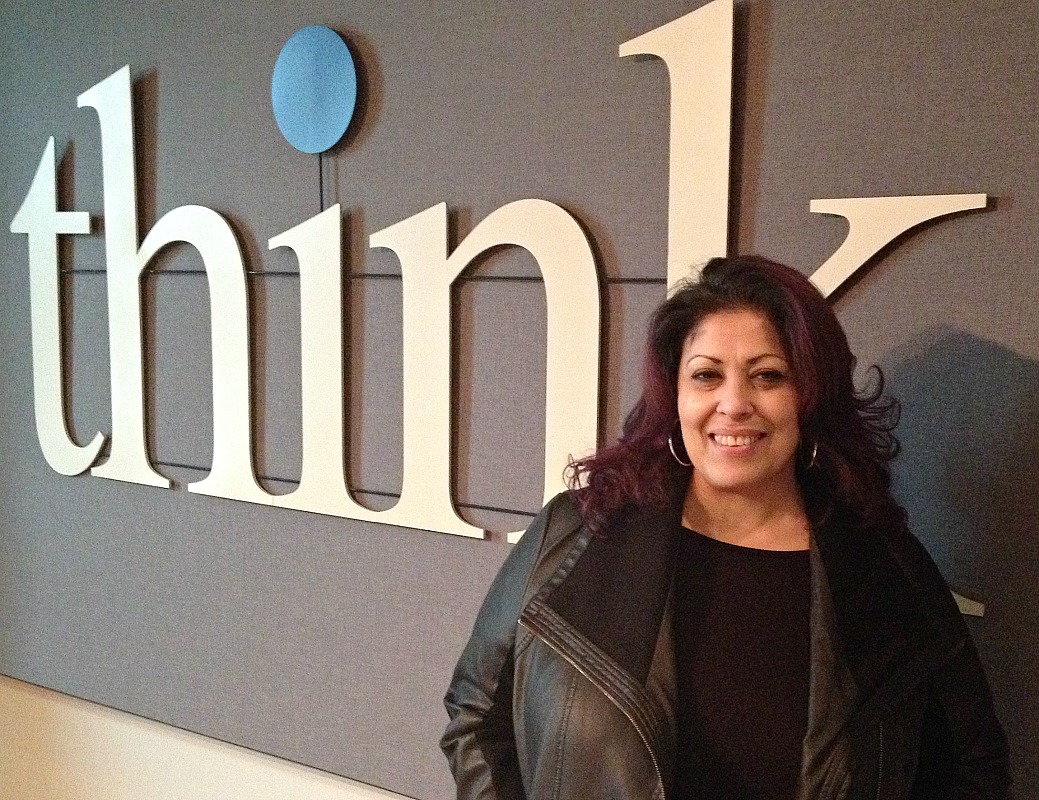Catastrophes And Aftermaths In The Dallas Theater Center’s ‘Gloria’
ArtandSeek.net December 16, 2016 13‘Gloria,’ the new dark comedy at the Dallas Theater Center, is about the near-collapse of print journalism and publishing in the past decade. It’s comic warfare among the cubicles — until real violence happens. Art & Seek’s Jerome Weeks sat down with director Christie Vela to talk about how playwright Branden Jacobs-Jenkins has people struggle over who owns their own story.
Now, ‘Gloria’ is set in the office of a major New York magazine, and I’m going to play a cut from the first act. Drew Wall’s character is hungover and he’s angry with Ani, the character played by Grace Montie, because no one else showed up at a party thrown by the office outsider, the office loner named Gloria.
ANI. Where were you last night?
DEAN. Gloria’s housewarming.
ANI. Wait – you actually went?
DEAN. I thought we were all going! Why didn’t you text me back?
ANI. Oh no! I thought we were joking!
DEAN. How would me texting you ‘Are you coming to Gloria’s?’ be a joke?
ANI. I totally thought you were texting me as if you were at the party but you actually really weren’t.
DEAN. Why would I ever do that, Ani?
ANI. I don’t know – it just seems like something you would do! I was never going to go to Gloria’s. She’s an emotional terrorist.
Far snarkier things are said in that first act, which is like a David Mamet drama for millennials. It’s about betrayals and office politics. At the same time, it plays like a great workplace sitcom like ’30 Rock’ or ‘The Office.’
So how do you play that? Play for the darkness? Play for the laughs?
And the payoff is really great.
The play is ostensibly about the near-collapse of print journalism and publishing in the last decade. But it’s also about an entire younger generation trapped in dead-end cubicle jobs.
So yeah, the play takes place in the publishing arena, but it’s about so much more and one of those things is the generational gaps.

Christie Vela in the THINK studio at KERA. Photo: Jerome Weeks
A big surprising catastrophic thing happens at the end of the first act. And the second act is set months later in the aftermath. And in this clip, we have one of the magazine’s fact checkers, played by Michael Federico, who worked for an editor named Nan. And hes talking to a studio official, played by Satomi Blair, who’s making a mini-series about what happened.
LORIN. Why don’t you just make up your own story? Why do you have to use Gloria’s story?
JENNA. It’s not Gloria’s story. It’s Nan’s story.
LORIN. What? No it’s not! This was like a group experience. This was a thing that happened to a lot of people! Not just Nan.
So in the second act, ‘Gloria’ becomes something of a ‘Rashomon’ story – the classic Japanese movie by Akira Kurasowa about four people who have different versions of the same events. But here, we hear from three characters re-telling the catastrophe and they’re not quarreling about the events, they disagree about –
Because they’re in the media, they’re very aware the story has value.
What do you mean?
The problem with some of the characters in ‘Gloria’ is that they never take a step back. Rather, they decide to profit from it. That’s the first thing that jumped out at me when I read the play. I have to say I hated all the characters the first time I read the play. And then the more I read the play, the more intrigued I became by them.
Actually, I fell in love with Kendra — who is the least favorite of everyone [laughing].
Oh yes, Kendra is a real piece of work.
See, I think we tend to sympathize with Dean, Drew Wall’s character, partly because he’s expressing everyone’s frustrations, while Kendra is blind to anyone else’s problems. She dismisses them. And ultimately, he’s a sad victim of post-traumatic stress.
I agree, I understand. But she’d make a better case if she did any actual work — as yes, Dean keeps harping on.
She is the funniest character.
But I couldn’t help noticing that the playwright gives the fact-checker kind of the last words, the lowly fact-checker.









